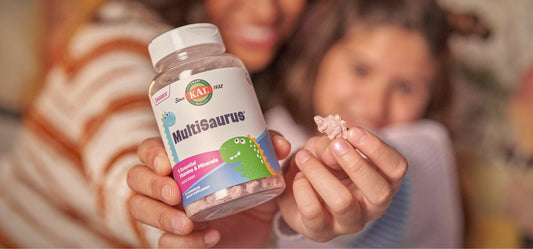Absorption is key when it comes to getting the benefits of the nutrients in foods and dietary supplements. After all, if the body isn’t absorbing the nutrients, it won’t get the health benefits. The technical term for this is bioavailability, which refers to the extent a nutrient is absorbed, stored, and utilized by the human body.1 Thanks to advances in liposomal delivery technology, there is a way to enhance the bioavailability of nutrients, specifically when it comes to dietary supplement ingredients.
What Are Liposomes?
Like a cocoon, liposomal delivery technology envelops the specific nutrient or combination of vitamins and minerals. In the case of liposomes, the cocoon is a sphere where the nutrient is floating in fats, also known as lipids, which provides a protective barrier promoting better absorption, delivery, and bioavailability of the nutrient.2 In addition to better bioavailability, liposomes offer protection from various factors that can harm the nutrient such as pH, light, digestive enzymes, and cellular interactions.3
Since the discovery of liposomes in the mid-1960s by a British scientist, the liposomal delivery technology has become quite popular in Europe and now North America and has been studied extensively.4
What Does the Research Tell Us About Liposomes?
The research supports that liposomal nutrients have better bioavailability. For example, a 2021 study found that liposomal vitamin C was 1.77 times more bioavailable than non-liposomal vitamin C.5 In a 2023 study the researchers explain that vitamin C is known for its instability, fast degradation, and poor bioavailability. They go on to say that liposomal delivery technologies may help offset these limitations because it enhances vitamin C bioavailability by protecting it so it can be used by the body.6
Other nutrients that may benefit from liposomal delivery technology include vitamin K2, iron, and minerals such as calcium, magnesium, and zinc.
Gotta Love Liposomes
Liposomal delivery technology takes something good, like valuable nutrients, and makes them even better because of the enhanced bioavailability. There are a variety of nutrients that are available as dietary supplements that utilize liposomal delivery technology. Look for “liposomal” on the label next time you get your vitamins!
Struggling with taking pill supplements? Try this instead. For more tips on nutrition, mindful wellness practices, and helping your family feel their best, follow us on Facebook @kalvits and Instagram at @kalvitamins!
References
- Melse-Boonstra A. Bioavailability of Micronutrients From Nutrient-Dense Whole Foods: Zooming in on Dairy, Vegetables, and Fruits. Front Nutr. 2020;7:101.
- Ko J, Yoo C, Xing D, et al. Pharmacokinetic analysis of liposomal and non-liposomal multivitamin/mineral formulations. Nutrients. 2023;15(13):3073.
- Subramani T, Ganapathyswamy H. An overview of liposomal nano-encapsulation techniques and its applications in food and nutraceutical. J Food Sci Technol. 2020;57(10):3545-3555.
- Liu P, Chen G, Zhang J. A Review of Liposomes as a Drug Delivery System: Current Status of Approved Products, Regulatory Environments, and Future Perspectives. Molecules. 2022;27(4):1372. https://www.ncbi.nlm.nih.gov/pmc/articles/PMC8879473/?report=reader
- Gopi S, Balakrishnan P. Evaluation and clinical comparison studies on liposomal and non-liposomal ascorbic acid (vitamin C) and their enhanced bioavailability. J Liposome Res. 2021;31(4):356-364. https://pubmed.ncbi.nlm.nih.gov/32901526/
- Bedhiafi T, Idoudi S, Fernandes Q, et al. Nano-vitamin C: a promising candidate for therapeutic applications. Biomedicine & Pharmacotherapy. 2023;158. https://www.sciencedirect.com/science/article/pii/S0753332222014822




